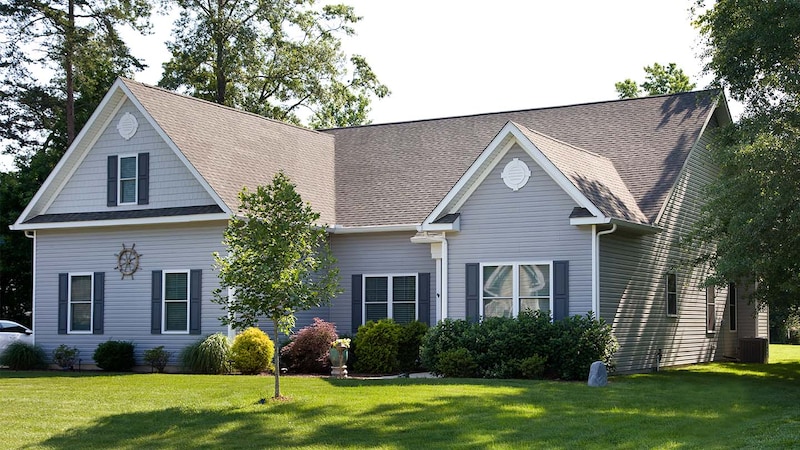Buying a house with high interest rates

Quick insights
- Buying a home when rates are high may offer less competition and more room to negotiate with sellers.
- Strategic measures like rate buydowns, a stronger credit profile or larger down payment could help lower your monthly payment.
- While interest rates can fluctuate over time, refinancing in the future may provide an opportunity to adjust your loan terms if market conditions change.
Rising mortgage rates may shift how you approach the homebuying process, but they don’t have to delay your dreams. With the right strategy and guidance from a Home Lending Advisor, it’s still possible to buy confidently, build equity and make smart financial decisions.
In this article, we’ll break down how to buy a house when interest rates are high and explore different strategies for homebuyers in such a market.
What high interest rates really mean for homebuyers
High mortgage rates don’t just affect your monthly payment; they shape your entire homebuying strategy. However, understanding the impact can help you plan. Here are some things to keep in mind:
- A higher interest rate may increase your monthly mortgage and total cost of the home over time.
- The rate you’re offered could affect your approved loan amount and shift your price range for a home.
- High rates might lead to fewer bidding wars if homebuyers pause on house hunting.
- A high-rate market can create opportunities to buy at less-inflated home prices in certain regions or neighborhoods.
Example of how interest rates affect your monthly payment
A monthly mortgage payment is calculated based on the loan amount, interest rate, and loan term. There can be additional costs, but with a lower interest rate, the monthly payment is smaller. For example, 5% of $100,000 is higher than 3% of $100,000. Payment calculations are more complex, but the interest is charged on the principal. Regardless of that principal, a higher interest rate increases the monthly payment because more interest is charged on the loan amount each month.
How to buy a house when interest rates are high
Buying in a high-rate market doesn’t mean you have to overpay for your home. Navigating a seller’s market requires more than just timing—preparation and flexibility can help buyers make suitable decisions.
While higher mortgage rates affect the monthly payment, there are several ways you could maximize your buying power and potentially reduce long-term costs:
- Buy mortgage points to lower your interest rate upfront. Mortgage points are an optional upfront cost paid at closing in exchange for a reduced interest rate. This may lead to meaningful savings over time, especially if you plan on staying in the home for more than just a few years.
- Put more down to reduce your loan amount. Putting down more money lowers your total loan amount, which can reduce your monthly mortgage payments. For conventional loans, a down payment of at least 20% usually avoids a private mortgage insurance (PMI) requirement.
- Explore adjustable-rate mortgages if you plan to move or refinance. Adjustable-rate mortgages (ARMs) usually offer a lower initial interest rate for a set period (such as 5 or 7 years), which may result in lower payments during that time. This option may work well if you expect to relocate or refinance before the rate adjusts.
- Boost your credit score by paying down your debt and limiting credit inquiries. A stronger credit profile could help you qualify for better loan terms. Paying your bills on time, reducing credit card balances and avoiding new credit applications may all contribute to a higher credit score and improve the rate you’re offered on a mortgage loan.
- Look into government-backed loan programs like FHA and VA. These programs may offer more flexible credit requirements and lower down payment options. FHA loans are designed for first-time homebuyers, especially individuals with modest savings or low credit scores. VA loans are available to eligible veterans and servicemembers, often requiring no down payment and no PMI.
Are high interest rates good for homebuyers in any way?
While high mortgage rates can seem like a drawback, they may also open doors for homebuyers who are financially ready and strategic. In a slower housing market, there’s often less competition because fewer people are actively searching for homes. This means you may have additional time to make decisions and more leverage when negotiating. Sellers might be more open to offering concessions, which are incentives or financial help provided by the seller to make the deal more appealing to the homebuyer.
Some common concessions are closing cost credits, repair credits and buydowns. If the seller offers a closing cost credit, that means they would pay a portion or all of the buyer’s closing costs (such as loan origination fees and title insurance). Some sellers may also contribute to a mortgage rate buydown, where they pay a portion of the loan costs upfront to lower the buyer’s interest rate, either temporarily (for the first few years) or permanently. These can create opportunities to buy a home with more favorable terms that may not have been possible in a hotter, low-rate market.
Another reason to buy even when rates are high is because housing prices generally increase over the long term. Economic factors like inflation, population growth and other widespread changes affect the housing market—home values in particular. So, even in a high-rate market, today might be the cheapest the home will ever be.
Planning for the future: What happens if rates drop later?
Today’s mortgage rates don’t have to be the rate you keep forever. Many homebuyers move forward with the understanding that their loan terms can possibly improve later, especially if market conditions shift in their favor.
- Refinancing could potentially lower your rate and payment down the road. If interest rates fall after you’ve purchased your home, refinancing may allow you to replace your current mortgage loan with a new one at a lower rate, which could reduce your monthly payment or overall interest costs.
- Some mortgage lenders offer special refinance programs or future closing credits. Depending on your loan provider, you might have access to reduced-fee refinancing options or credits if you refinance with your mortgage provider in the future. It may be worth asking lenders about programs that reward loyalty or early refinancing.
Ask about a float-down option during the loan approval process. A float-down option allows you to lock in your interest rate but take advantage of a lower one if rates drop before closing. While it may come with a fee or specific conditions, it offers peace of mind in a fluctuating housing market and could help you secure better terms if timing is on your side.
In summary
Buying a house with high interest rates may seem like a challenge, but it can also be a moment of power for prospective homebuyers. With less competition, smarter negotiation opportunities and flexible loan strategies, homebuyers who stay ready may still come out ahead. What if the rate drops later? Depending on the loan provider, you could refinance and keep building equity in a home that already fits your life. What if the home’s value appreciates? A house could be at the lowest price it might ever be today, even though rates fluctuate over time.
Making a home purchase is not just about timing the housing market; it’s about aligning the purchase with your vision, budget and long-term financial goals.



